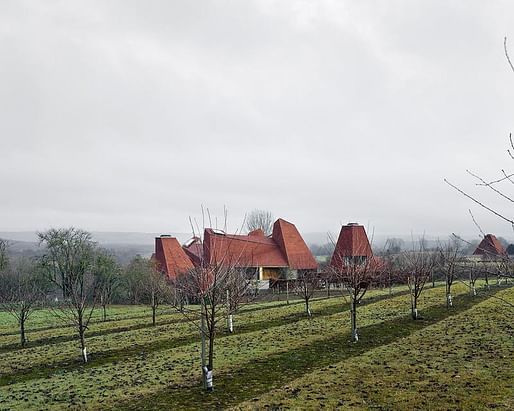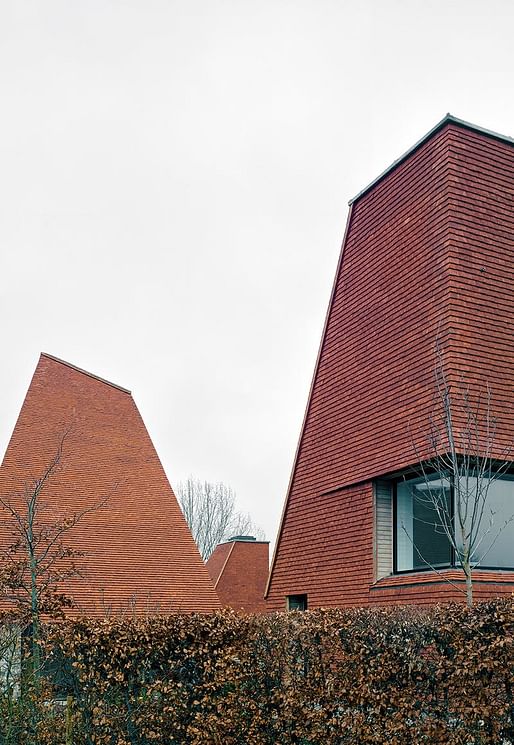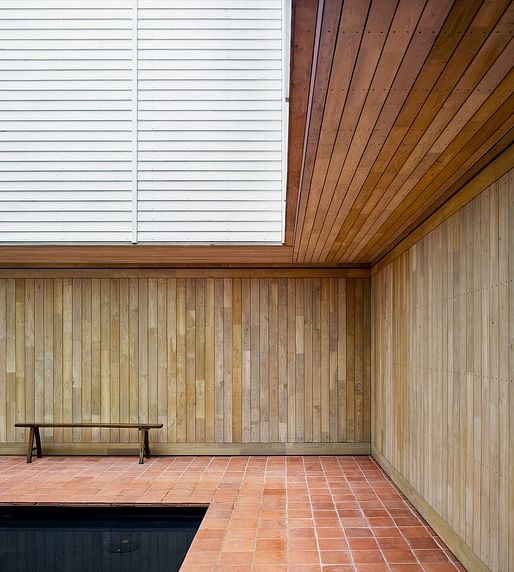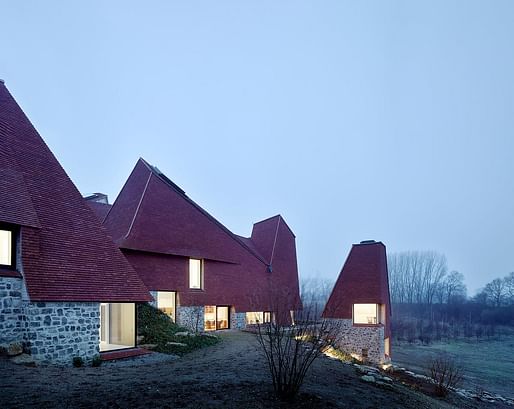
The UK's most prestigious award for a new house or extension, the RIBA House of the Year Award, has officially been announced and awarded to Caring Wood. Designed by James Macdonald Wright of Macdonald Wright Architects and Niall Maxwell of Rural Office for Architecture, the 21st century country home was picked from a long-list of 20 that included Richard Meier's first UK building a self-build treehouse in Dorset complete with its own suspension bridge and slide and a cork-covered holiday home in Essex marshland among others.
Established in 2001 as the Manser Medal, the annual award was revealed this year on the popular UK property show Grand Designs, which also explored the seven shortlisted homes in a four-part series that concluded this evening. The winner, a massive 84-acre estate near Kent, was a top contender for the prize having also won a 2017 RIBA National Award under the "individual house" category.

The reimagined traditional English country house was designed for a large family spanning three generations and includes both a gallery and recital room that the neighborhood will also have opportunities to enjoy. Comprised of four individual homes with interlocking roofs, the design was inspired by Kentish oast houses—buildings which were constructed to dry hops for the nation's breweries, many of which have now been turned into homes—as well as the Arts and Crafts movement. Seven years in the making three of which were for the design, the building's construction also drew inspiration from the area's vernacular, relying on local building traditions including handmade Kent clay tiles, and quarried ragstone and coppiced chestnut cladding from Sussex.

"This ambitious house explores new architectural methods, materials and crafts and allows us to question the future of housing and the concept of multi-generational living" said RIBA President Ben Derbyshire. Caring Wood, as a modern home with very deep connections to the traditional rural architecture of its setting, is an example of critical regionalism—a progressive design infused with a spirit of local identity, according to the architects.

Interestingly enough, the plan for the estate was granted permission under PPS7, which says that, contrary to the usual ban, you can build a big, isolated house in the countryside if you can prove that it is "of outstanding architectural quality.” To successfully win planning approval, the architects, beyond quality design, also utilized a carbon-neutral strategy. The house features an electric car-charging point, ground source heat pumps, a pond to manage run-off water, arrays of solar panels, and walls airtight and thick with insulation. The architects also worked with the Farming and Wildlife Advisory Group to develop the planting of over 25,000 native trees, which they hope will provide a habitat for at-risk wildlife displaced by deforestation of the site around a 100 years ago.

“Sustainability in architectural practice is expected, but I believe regionalism, craft and the interpretation of the vernacular are also important. I’m delighted that, in Caring Wood, they are being recognized" said architect James Macdonald-Wright. "This project proves that, by joining together, small practices can do big things. It was made possible by the combination of an incredibly dedicated team and a uniquely supportive client" he added.
Deborah Saunt, RIBA House of the Year 2017 jury chair noted of the project: “Beyond the impression of sublime craftsmanship and spatial grandeur this house offers, Caring Wood leads us to fundamentally question how we might live together in the future." "This is a brave project offering a new prototype" she said, adding that "this intimate house delights in the way it beautifully manipulates space and avoids grandiosity. Unobtrusive within its landscape, it builds on the pattern of settlement centuries old. This is a house for all ages.”

The Architect's Chair / Edition #3
Register by Wed, Jan 15, 2025
Submit by Tue, Feb 18, 2025

The Home of Shadows / Edition #3
Register by Wed, Jan 29, 2025
Submit by Mon, Mar 3, 2025

Re:Form – New Life for Old Spaces
Register by Wed, Jan 22, 2025
Submit by Tue, Sep 2, 2025

The Last Nuclear Bomb Memorial / Edition #5
Register by Thu, Jan 16, 2025
Submit by Wed, Feb 19, 2025
No Comments